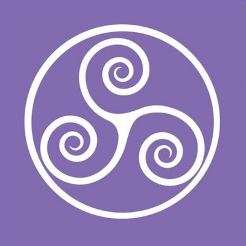A woman in a writing group I’m in recently read a letter she wrote to a friend who had ended her own life—not a suicide, you understand, but a conscious and self-generated ending to avoid putting her family through days or even weeks of watching her in excruciating pain. This woman had a peaceful passing, a dignified death. “It was perfect,” one of the women in our group said. “This is the way death should be.”
Perhaps. But the drama of departure is only part of the story, and it’s not the most important part, either. What happens after death? What is the next step? A lot of people—my ex-husband among them—are fairly certain that there is no next step. They say that the body dies and the consciousness that was this individual dies with it, merging with the energy of the universe in a way that is both material and predictable. This is not my view, but I don’t like to get into yes/no discussions about death because no matter what side of this debate you take, it’s a hard argument to prove—impossible, I would say.
I have noticed, though, that there seems to be increasing attention given to this question—anyway, more than at any other time in my own life. There are magazine articles, interviews. My most recent editing client has written a novel about what happens after death, and it reads like science fiction. And just last week on one of the streaming services, a friend and I watched a romantic comedy the premise of which was that the heroine, a seventeen-year-old, is able to talk with the dead. She helps them complete any unfinished business they have with the living so that they—the recently departed—can be ready to move on to the next level.
All of which proves nothing, of course, except to show that we, as a culture, are giving “the next step” a little more thought than we did a few decades ago.
Unlike the heroine of that movie, I am not a psychic who has a dependable relationship with the departed, yet I will say that everyone I have ever cared about who has died has gotten some sort of message back to me from “the other side.” I receive these messages in my mind’s ear, usually when I am chanting or meditating—in other words, at some point when my mind is quiet. Though, come to think of it, the first time this ever happened was right after the death of Yashoda Duffy, a friend of mine, and the message came as I was going to her memorial service. In the moment I walked through the door of the ashram temple, where we were just about to have Yashoda’s service, I heard her voice, clear as a bell, say to me, “Hi Honey!” It was so sweet, so Yashoda.
I know that many people would say, “But that was just your mind; it was your own mind doing that.” I don’t think so, and my reason is this: I have always been surprised by these messages. They were communications I wasn’t thinking about, wasn’t expecting to hear.
Several years after that, my friend Govinda King died. I was planning to recite Shri Guru Gita for him, but I kept putting it off. Then I heard Govinda say, “I want to send blessings to you, but I can’t do that if you don’t send blessings to me.” It was a sweet, brotherly correction—and not something my mind would ever have come up with.
Shortly after his death, my father told me, “I was weak,” and that was the last thing I expected to hear from my sweet dad. it was a long time before I understood what he meant by that. He was referring to something that had happened in a past life, something I once uncovered while working with a therapist.
Then about six months after her death, my mother told me, “We’re finished.” It sounds quite intense and harsh if you just look at the words, but that wasn’t Mom’s meaning. She meant that the tricky and sometimes painful karma between the two of us was finished; it was cleared. I understood this because my mother’s concise message came with a stream of pure love.
My main point with all of this is that, though their physical bodies were gone, these individuals still held sufficient psychic power to send me a communication. I also have to say that none of them conveyed information about their after-death experience. Nobody said, “Wow, wait till you see these sunsets!” or “The music here is wonderful!” Mostly, they gave me information or observations about me; mostly they said things that might help me on my journey or help them on theirs.
My father asked me to plant a tree in his name before the first anniversary of his death. That was very specific. I did it. I had a tree planted in a holy place. A year later, I visited that tree, and when I saw it, I was washed through with waves of a supernal joy. Later, my father asked me to pray for his own father, whom he had loved dearly. “He’s not as happy as he should be,” my father told me. Now I regularly pray for George Baright Dunsmoor Sr.—and I mention his name now in case anyone who reads or hears this is inspired to do the same.
My teacher once said that, for people who have passed over, having someone on this side—someone living—to remember them with love is more precious than gold. Gold, as we all know, is a kind of wealth we must leave behind when we die. What can we take with us? Caring, compassion, reverence, love, and other such virtues are called “divine wealth” because they are thought to stay with us when we cross over.
And I suppose it’s good that we can’t know precisely what happens then. Whatever death may turn out to be, it is an adventure we all have before us.


Yay Maha for this heartfelt exploration! I’ve also had similar experiences: Once, while praying for a friend who took her own life in her early 30s, I heard a loud popping noise, and knew without a doubt that my prayers had freed and supported her in moving forward in some way. Another time, shortly after a friend on another continent had passed from cancer, she surprised me by very distinctly tapping me on the shoulder as I was walking to a sacred temple, and I was able to take her with me to this place I knew she loved so much. I appreciate the reminder that it’s love that travels with us when we leave – and so what a great focus to maintain.
There is so much more going on than most of us can fathom! Thanks so much for adding your stories.